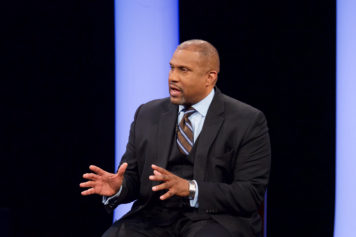A Washington judge has denied Tavis Smiley’s request that PBS hand over documents from as far back as the early 2000s relating to all of the romantic relationships senior network personnel have had with subordinates.
The request, according to documents obtained by The Hollywood Reporter, was deemed too broad by Judge Anthony Epstein on Thursday, Aug. 24.
PBS claimed that the more than decade-old documents were irrelevant to the contract issues his initial lawsuit was pursuing, which includes sexual harassment policies since 2000 and any records that the relationships managers had with lower-level employees resulted in any discipline.
“TSM is not entitled to conduct a fishing expedition concerning all romantic or personal relationships between superiors and subordinates within PBS or within companies with which PBS did business,” the judge said in his decision. “However, if TSM has information that PBS tolerated behavior inside PBS or within one or more of its partners that is comparable to the behavior in which Mr. Smiley is alleged to have engaged, or if other discovery in this case shows that PBS compared Mr. Smiley’s conduct with conduct of other people with whom it did business, targeted discovery may be appropriate.”
Smiley filed a lawsuit in February against PBS for terminating him amid sexual misconduct allegations. He had been seeking documents for information about PBS firing him, which he claimed was simply a front for the network. Amid his other allegations, Smiley, who has since landed a new show deal, claims PBS was “racially hostile.”
PBS disputes that but maintained it has the right to cancel a program on any grounds — including racial discrimination. Because of that, the network says information related to its cause for giving Smiley the pink slip is irrelevant, a claim the judge did not endorse.
“TSM does not provide any specific information supporting its allegation that PBS would not have terminated the distribution arrangement if he were not African-American,” Epstein said. “But the Court is unwilling to make an open-ended ruling that a contractual provision or the First Amendment gives media companies a license to engage in discrimination based on race.”
This development comes after Smiley’s former employer won a motion to dismiss two of his claims. Smiley filed an action for intentional interference with contract and tortious interference with business expectancy. Epstein said those claims stem from actions that are guarded by the First Amendment and the host had no evidence supporting the notion that it was feasible for him to succeed based on that allegation.


